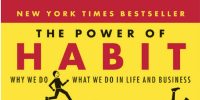Freelancing is characterized by ups and downs. It can feel like an emotional rollercoaster at times. One month, you’re busy with work, feeling like a success; another time, your work is slow, and you’re wondering if freelancing is really a sustainable career. When freelancing work gets slow, you may worry about finances, feel unproductive, and find it hard to imagine getting high-quality clients again. Here are some ways to stay busy when your freelancing work is slow to help you feel motivated and open you up to more job opportunities.
Looking for Work Productively

Firstly, you want to diversify how you look for freelancing work. The more methods you use, the sooner you’ll get clients. Try the following:
- Use major job sites, such as LinkedIn, Indeed, ZipRecruiter, and Glassdoor. Narrow your search by using keywords relating specifically to the work you want, as well as “freelance” after these keywords.
- Use job sites tailored for freelancing. These would include remote job listing sites like Remote.co, We Work Remotely, Jobspresso, Remote OK, and Working Nomads.
- Ask around. Get in touch with friends, family, acquaintances, former colleagues, and contacts on social media who you know are – or who may be – connected to someone in your line of work.
- Use social media to increase your job opportunities: this would include improving the professional look of your profiles, sharing work, engaging in job search pages, networking with other professionals, and posting that you are available for work (while using relevant hashtags and mentions, ensuring that your message reaches a wide audience and the right people).
Update Your Resume

Updating resumes is something freelancers usually forget to do when they’re busy with work. If you are going through a slow period, now would be a good time to clean up your CV, making it as concise, readable, and informative as possible. Also, prioritize what freelance gigs you include on there. Remove less relevant ones and add new freelancing work you’ve been doing that will likely impress potential clients.
Work on Your Personal Website

A personal website is a must with freelancing. If you don’t have one already, now would be the perfect time to set one up. You can easily do this using a platform like WordPress, Wix, or Squarespace. On the other hand, if you have a personal website, you should spend your slow time updating and improving it. This can include:
- Updating your portfolio.
- Improving the usability of your site so that clients can find relevant information easily.
- Making it look more professional, such as including a high-quality photo of yourself, fixing any bugs, and perhaps changing the design.
- Updating your blog section: writing more blog posts will help to keep you busy and lets clients know that you are passionate about the field you’re working in
Learn and Develop Relevant Skills

You can also stay busy and productive by learning and developing skills relevant to your profession. If you’re a writer, still try to write every day, whether that involves working on a personal project or a blog you own. Writing every day will help to improve your knowledge and skills. This applies to other creative professions, too, such as SEO, graphic design, animation, photography, journalism, music, and fashion. By staying up to date with industry trends and refining your skillset, you will be in a better position to obtain new work. Also, staying busy when work is slow will make it easier to transition into a schedule of paid work.
Keep in mind that these slow periods are completely normal. Everyone in freelancing goes through them. They’re not a sign of failure. What you want to do, however, is take the necessary steps so that you use these quiet periods wisely..

